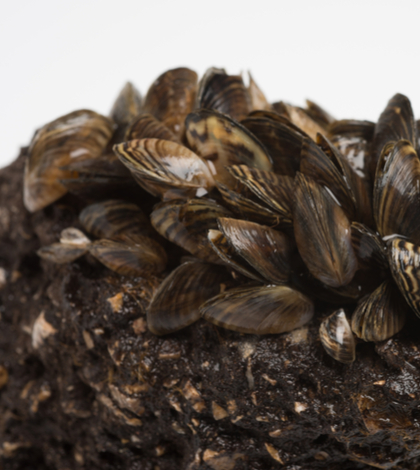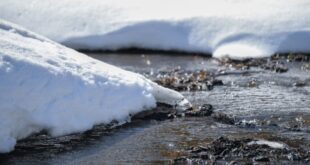Following a set of incentives to protect western ecosystems and hydroelectric facilities from invasive zebra and quagga mussels launched last June by U.S. Secretary of the Department of the Interior (DOI) Ryan Zinke, DOI recently released a report highlighting the progress being made regarding the aquatic invasive species. First introduced to the Great Lakes in the 1980s, zebra and quagga mussels spread outward via recreational watercraft being transported to other regions of the country.
“I am pleased to share progress made on honoring those commitments,” said Secretary Zinke. “There is more work to do, and Interior is committed to continuing our efforts. With the busy boating season approaching, it is imperative that we are vigilant in taking measures to prevent the spread of invasive mussels and other aquatic invasive species.”
Some of the highlights since the initiatives were announced in June include:
- Convening federal, state, tribal, and nongovernmental groups to identify options to strengthen watercraft inspection and decontamination programs at infested waters, such as at Lake Havasu as well as Lake Mead, where the Bureau of Reclamation committed to spending another $150,000 this year to bolster efforts.
- The U.S. Fish and Wildlife Service, National Marine Fisheries Service, and Pacific States Marine Fisheries Commission are leading planning efforts to expedite Endangered Species Act Section 7 consultations to ensure a quick response if invasive mussels are detected.
- The Bureau of Reclamation launched a prize competition seeking innovation solutions to eradicate invasive mussels from large reservoirs, lakes, and rivers in a cost effective and environmentally sound manner. (See: https://californiawaternewsdaily.com/drought/prize-competition-to-eradicate-invasive-quagga-and-zebra-mussels-initiated-by-reclamation/.)
DOI spent $8.6 million in Fiscal Year (FY) 2017 to address invasive mussels nationwide. This included an additional $1 million for the Bureau of Reclamation to establish watercraft decontamination stations, provide educational materials and continue monitoring efforts. Additionally, DOI and the Western Governors Association (WGA) has been in regular communication on these initiatives. It complements the efforts and effective state-federal-tribal partnerships and initiatives that have been in process for decades.
“Western Governors remain committed to the fight against invasive species on Western lands, including the threat that invasive mussels pose to Western waterbodies,” said the WGA. “Addressing a threat of this magnitude requires leadership, innovation, and coordination at all levels of government.”
Infestations of zebra and quagga mussels can clog power plant, industrial, and public water supply intakes and pipes; dramatically change aquatic ecosystems; and, require substantial investments to control. They are among the many invasive species causing economic and ecological destruction to various infrastructure and personal property as well as harm to human health across the United States.
DOI requested $11.9 million in FY 2018, including an additional $3.4 million for Reclamation to expand to help prevent, contain, and control invasive mussels. Approximately $3.1 million is in the process of being released under the continuing resolution to support federal, state, and tribal activities such as the purchase and operation of watercraft inspection and decontamination stations in the Lower Colorado River basin. To help raise awareness about destructive aquatic mussels and other invasive species, events have been held across the country this past week during National Invasive Species Awareness Week (NISAW).
Closer to home, the California Invasive Species Action Week will be held this year from Saturday, June 2 through Sunday, June 10. The event(s) seek to increase public awareness of invasive species issues and promote public participation in the fight against the state’s invasive species and their impacts on local natural resources. Specific to invasive mussels, authorities in California stress boaters Clean-Drain-Dry their boats after every outing. More information on preventing the spread of zebra and quagga mussels from the California Department of Fish and Wildlife can be found at: https://nrm.dfg.ca.gov/FileHandler.ashx?DocumentID=3877&inline.
 California Water News Daily Your Source For Water News in California
California Water News Daily Your Source For Water News in California


